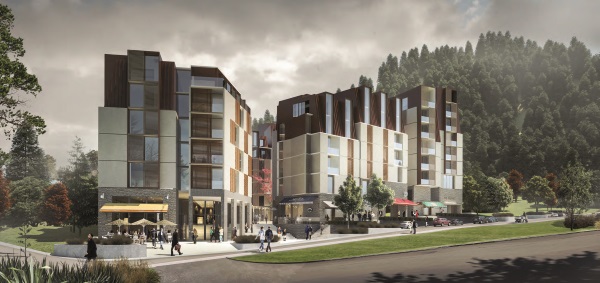What Can We Expect in 2023?
It is always difficult to predict what is going to happen in the property market, let alone in a climate where there is so much global uncertainty. Couple this with the ongoing pressures of rising inflation, increasing costs of living, increasing mortgage rates and significant worker shortages and it is not hard to see why many pundits are speculating that property prices will fall “across the board”.
The December “Property Report” from realestate.co.nz observed that available listings were once again on the increase, properties were taking longer to sell and asking prices were dropping.
December Property Report from realestate.co.nz
While, as you will see in the above article, the Central-Lakes District saw a drop in average asking prices of 2.2% compared to a year ago, as we continue to emphasise, we are a small market and these figures can be significantly skewed from month to month depending on the properties that have transacted during the reported periods.
Here at IQ we’ve not seen a significant softening in the market. And while we’ve observed that sales in some sectors of the market have been at prices lower than we would have expected, we’ve also seen record sales figures achieved in other sectors.
Queenstown is not just “one market” and different sectors have very different economic and environmental drivers and as such, in times of uncertainty, it is often more relevant to look at these drivers than what the “general market” is doing.
So, given it is the core of our business here at IQ, let’s take a look specifically at the Managed Apartment and Lifestyle Investment sector and the key drivers to look out for there.
On February 22nd the OCR was raised 50 basis points to 4.75% and with inflation still running at over 7% it is anticipated that another increase is considered likely. One year fixed mortgage rates are sitting around 6.5% to 7%. These lending rates are significantly above the 4.5% to 5% returns typically earned by owners in this sector. So a straight investment scenario – when borrowing is required – does start to look less attractive in the current climate.
The counter to this however, is that we are seeing a much lower proportion of our buyers requiring finance. We are also seeing continued interest from Australian buyers where the NZ dollar is currently at a 4 month low against the Australian dollar. So for those buyers, especially those who are looking to come over and enjoy staying in their property as part of their overall investment proposition, Queenstown is still a very attractive option.
While we don’t envisage income levels rising to a point where they are commensurate to mortgage rates, they have recovered much faster than expected. Visitors from Australia have surged back into Queenstown with a very strong winter season and and an exceptional summer. We are also now seeing a sharp increase in visitors from some of our traditional longer haul markets – especially the US. This has translated to some owners, especially in the 5-Star space where, receiving record incomes over the peak periods of July 2022 and Jan/Feb 2023. This is despite most major complexes having to limit capacity due to ongoing staff shortages.
It is likely that the staff shortages will continue for some time yet as Queenstown does rely heavily on a transient workforce of young overseas visitors who are only now starting to travel again. We are also suffering from an extreme accommodation shortage – so even while we are seeing an increase in available workers who have a plethora of jobs to chose from, they are not staying in town as they simply can not find anywhere to live. And as you can expect, rents are rising significantly as a consequence.
Alongside all of this is a trend continuing from the middle of 2022 where we are seeing very few owners looking to sell. Owners who have seen it through the tough times of Covid where income was essentially at or close to zero are now enjoying very strong returns. As such, the prevailing sentiment is one of reaping the rewards and “making up for lost time”.
What does this mean for 2023?
We anticipate continued low levels of available stock. We do not see the sector being adversely affected by increasing interest rates as the majority of owners are long term and are not holding a lot of debt against their investments. Those who have purchased over the past couple of years have also, for the most part, been cash buyers, so again – no real exposure to increased interest rates.
We are also seeing a real reluctance to sell amongst our owners outside of NZ, Singapore and Australia as the foreign ownership restrictions introduced in 2018 will prevent many of them from buying back into the market.
As the year goes on and international travel continues to recover and (hopefully) our staffing shortages begin to ease, not only do we anticipate continued increases in returns but we also expect to see higher levels of demand, especially in the major managed complexes which are exempt from the foreign ownership restrictions – allowing anyone from anywhere in the world to purchase.
As such, while stock levels are likely to remain relatively low, prices are expected to increase. We also expect to see a continued lessening of importance assigned to income as part of the overall investment proposition as buyers become more focused on securing their “lifestyle” investment and can see the future capital growth that a quality property in Queenstown presents.
We fundamentally believe that when the world does return to a new “normal”, New Zealand and Queenstown in particular will be high on the travel and investment wish-list and we anticipate this will see a significant shift in the value of high quality managed apartments with a certain degree of independence from the income/ROI equation as the market moves more towards a medium to long-term capital appreciation scenario.



